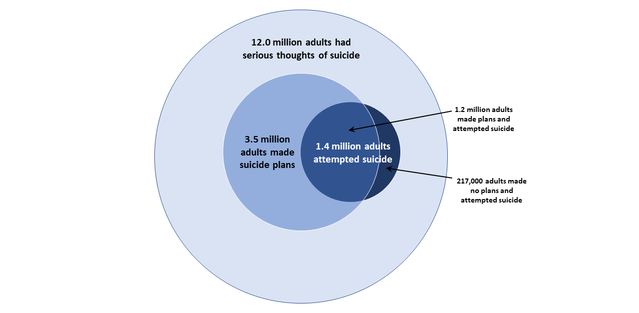Happiness
What Makes You Happy? Why Fun Matters to Your Happiness
The sense of liberation is essential to your psychological well-being.
Posted September 23, 2021 Reviewed by Chloe Williams
Key points
- Aristotle proposed that eudaimonia, or leading a virtuous life by chasing success and mastery, is the pinnacle of happiness.
- Epicurus proposed that happiness was achieved from ataraxia—a state of being completely free from anxiety or fear.
- Research suggests that the experience of having fun reflects Epicurus' philosophy, when people feel liberated from the constraints of life.
A few evenings ago, as I sipped on my pinot with a long-time friend I had not seen for years, we spent hours contemplating and talking about life. Eventually, the discussion centered around one big question: What made us happy? Is it the close relationships we have with our friends and family, or is it the recognition of leading a successful career? Or is it making a lot of money? Are those enough? What about the simple pleasures of life, such as drinking this elegant and beautiful glass of wine?
Despite having studied individuals’ happiness and well-being for years, I still find the question, “what makes you happy?” intriguing and engaging every time. Of course, I am not the first to explore the depths of human happiness. More than two thousand years ago, the ancient Greeks also spent countless hours thinking and arguing about different paths to living a good life. I’d like to briefly introduce two philosophers, one well-known and the other, less so.

Does leading a virtuous life make you happy?
In regard to well-being (note: I use the term well-being and happiness interchangeably, which may irk some academics), Aristotle proposed eudaimonia—of leading a virtuous life—as the pinnacle of happiness. The notion of living a meaningful and fulfilling life (e.g., making genuine social connections, excelling in one’s capabilities, being morally sound, etc.) bodes well with the positive psychology movement that emerged at the turn of the 21st century, giving rise to concepts such as flow, flourishing, and eudemonic well-being. While I have no objections to, and in fact very much agree with, the significant role that eudaimonia plays in happiness, I find that the pendulum has swung too far in this direction when it comes to determining what “should” make people happy.
Too many people today—young and old—are under constant pressure to build a successful and prosperous career, do well in school, be a good parent (or child), make meaningful social relationships, or exert positive social influence. I’m not saying that any of these goals are unworthy. The problem is that these “virtues” have become so synonymous with achieving happiness that they are placing undue burden on individuals.

We are severely stressed, if not depressed, when we fall short of achieving these goals. According to the CDC, suicide rates in the US have steadily increased for the past 20 years, and appallingly, have increased double-digits for 15- to 24-year-olds. In 2019, suicide was the second leading cause of death for youth and young adults (ages 10 to 34). Though multiple factors probably contribute to these dreadful statistics, the unbearable tension built up from how we strive for happiness (e.g., through a sense of achievement or meaningfulness) might be one prominent factor. How can we resolve or at least mitigate this load?
An alternative view on happiness: Epicureanism
As Aristotle approached the peak of his philosophical career, another great influential thinker was born in ancient Greece: Epicurus. For Epicurus, happiness was not necessarily about achieving great fame, success, or mastery, but from ataraxia—a state of being completely free from anxiety or fear. He proposed a more hedonic, as opposed to a eudemonic, approach to well-being. Epicurus and his followers gathered at his school, named the “Garden” (κῆπος), and lived communally under the paradigm of maximizing pleasure and minimizing pain. And no, they did not just indulge in debauchery.
In contrast to common misconceptions about Epicureanism (e.g., promiscuity, over-indulgence, lack of morality), Epicurus lived a modest life, suggesting that a piece of cheese could be just as pleasing as a whole feast. To him, happiness was about being free from worries: enjoying time with friends, finding a “job” you really like to do, or living communally so that people can help one another out when needed. Although Epicurus was mostly dismissed and criticized with the rise of Christianity and faded in people’s minds over time, his ideology deserves more serious attention today.
Having fun is a modern-day expression of Epicurean happiness
Results from numerous studies with hundreds of participants I conducted for the past five years repeatedly show that happiness is achieved not only through meaningful pursuits but also through distinct types of pleasure. In particular, the psychological experience of having fun somewhat reflects the philosophy of Epicurus. As discussed in my previous blog post, when people feel temporarily liberated from the various constraints of life (e.g., obligations, discipline, restrictions) while engaged in a pleasurable activity, the experience of fun is maximized. Indeed, fun is an experience of liberating engagement.
Without the sense of being free and carefree, at least from time to time by letting loose and having fun, people may feel burned out or find life dull and pointless, even after reaching “success.” Having fun, in this sense, is a modern-day expression of ataraxia.
Lastly, an interesting phenomenon observed in my dataset of interviews and written narratives is that recollections of having fun, whether with family, friends, or even strangers, are often one of the most memorable and happiest memories in a person’s life. While fooling around with friends over a couple of drinks or going to a theme park with family may seem unproductive, these times of fun seem to give people the motivation to continue their life journey and make life worth smiling about.

References
Centers for Disease Control and Prevention, National Center for Injury Prevention and Control. Web-based Injury Statistics Query and Reporting System (WISQARS) [online]. (September 2021). Retrieved from www.cdc.gov/injury/wisqars
Epicurus and Eugene O’Connor (1993), The Essential Epicurus: Letters, Principal Doctrines, Vatican Sayings, and Fragments, Buffalo, NY: Prometheus Books
Konstan, David, "Epicurus", The Stanford Encyclopedia of Philosophy (Summer 2018 Edition), Edward N. Zalta (ed.), URL = <https://plato.stanford.edu/archives/sum2018/entries/epicurus/>.
National Institute of Mental Health, "Suicide," Retrieved from https://www.nimh.nih.gov/health/statistics/suicide




